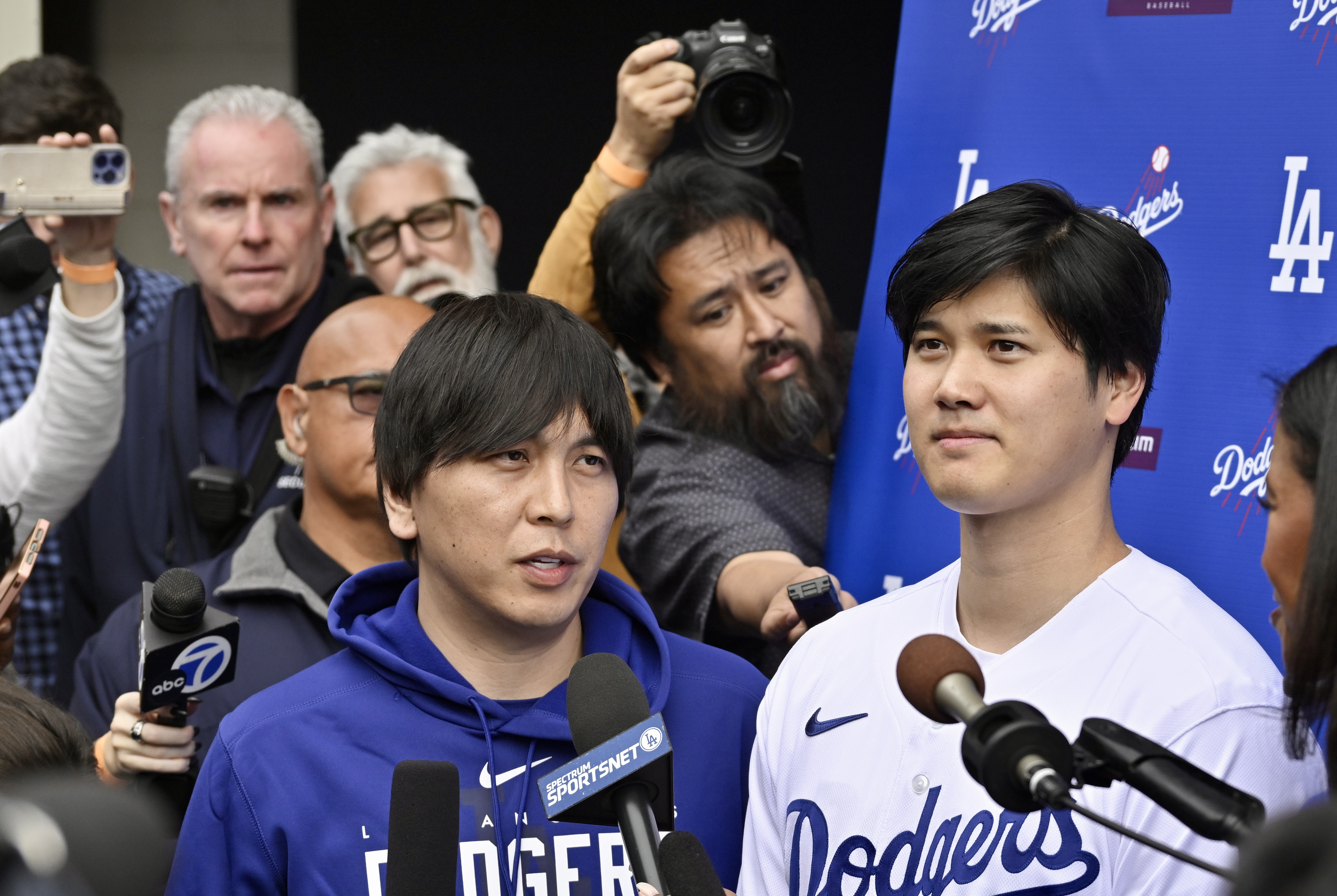Major League Baseball's policy on gambling is posted on the wall in every team's clubhouse, offering anyone who enters a reminder of where the league stands on betting and the potential consequences of misconduct.
League Rule 21 states that players and team employees are prohibited from placing wagers, even legal bets, on baseball and from wagering with illegal or offshore bookmakers. It also mentions the possible punishments, which may be largely left up to the league's front office.
How the policy may apply to recent revelations involving the interpreter for Dodgers star Shohei Ohtani remains to be seen, but reports from the Los Angeles Times and ESPN about Ippei Mizuhara’s alleged ties to an illegal bookmaker have cast a shadow over the team's season-opener this week in Seoul.
So, what is the league's policy on gambling?
Get top local stories in Southern California delivered to you every morning. >Sign up for NBC LA's News Headlines newsletter.
Does MLB's policy allow sports gambling?
Yes, but not on baseball or wagers with illegal or offshore bookmakers. For example, bets placed on NCAA March Madness brackets, the Super Bowl and fantasy football would be allowed under the policy, as long as the wager isn't with an illegal bookmaker.
In the Mizuhara case, the Los Angeles Times and ESPN reported alleged ties to an illegal bookmaker. Mizuhara told ESPN that he gambled on international soccer, the NBA, the NFL and college football, but never bet on baseball.
“I never bet on baseball,” Mizuhara told ESPN. “That’s 100%. I knew that rule... We have a meeting about that in spring training.”
ESPN reported that the allegations involving Mizuhara centered on wire transfers from Ohtani's account. The transfers, worth at least $4.5 million, were allegedly paid to a bookmaking operation in Southern California under federal investigation, ESPN reported.
Ohtani's attorneys have released a statement saying he was a victim of "massive theft."
“In the course of responding to recent media inquiries, we discovered that Shohei has been the victim of a massive theft and we are turning the matter over to the authorities,” law firm Berk Brettler LLP said in a statement Wednesday.
ESPN reported that Mizuhara, who initially said Ohtani had paid his gambling debts at his request, later said on Wednesday that Ohtani had no knowledge of the gambling debts and had not transferred any money to bookmakers.
"Worst case scenario, if it was (Ohtani) who did the gambling and made the wagers through a proxy in the form of his interpreter, that could be a serious problem with Major League Baseball," said attorney Daniel Wallach, founder of Wallach Legal, which specializes in sports gambling. "But if it is as he says or as the story currently exists, that it’s the interpreter who took all these measures, transferred the money, made the bets, then Ohtani is in the clear."
The Dodgers said in a statement they were "aware of media reports" and are gathering information.
“The team can confirm that interpreter Ippei Mizuhara has been terminated,” the statement said. "The team has no further comment at this time.”
Who is under the MLB gambling policy?
The policy applies to all players, umpires, club and league officials and employees.
Mizuhara was hired by the Dodgers after the two-way superstar signed a $700 million, 10-year contract with the team in December. He was in the team's dugout Wednesday when the team opened the season in Seoul against the Padres. News of the accusations broke later that day.
While in Japan in 2013, Mizuhara was hired to translate for English-speaking players on the Hokkaido Nippon-Ham Fighters, where he met Ohtani. The Angels hired Mizuhara to work as Ohtani's personal interpreter when he signed with the team in 2017.
What exactly does MLB's gambling policy say?
Below, the complete text of the league's gambling policy under Rule 21.
(d) GAMBLING.
(1) Any player, umpire, or Club or League official or employee, who shall bet any sum whatsoever upon
any baseball game in connection with which the bettor has no duty to perform, shall be declared
ineligible for one year.
(2) Any player, umpire, or Club or League official or employee, who shall bet any sum whatsoever upon
any baseball game in connection with which the bettor has a duty to perform, shall be declared
permanently ineligible.
(3) Any player, umpire, or Club or League official or employee who places bets with illegal book makers,
or agents for illegal book makers, shall be subject to such penalty as the Commissioner deems
appropriate in light of the facts and circumstances of the conduct. Any player, umpire, or Club or League
official or employee who operates or works for an illegal bookmaking business shall be subject to a
minimum of a one-year suspension by the Commissioner. For purposes of this provision, an illegal
bookmaker is an individual who accepts, places or handles wagers on sporting events from members of
the public as part of a gaming operation that is unlawful in the jurisdiction in which the bets are
accepted.
Sports gambling is illegal in California. Thirty-eight states and the District of Columbia allow some form of sports gambling.
What's the penalty for violating MLB's gambling policy?
Rule 21 outlines possible punishments, which include a one-year ban from the sport to permanent ineligibility. Other penalties for illegal sports betting are left up the the league's front office.
The league's most famous gambling scandal involved Pete Rose, who agreed to a lifetime ban in 1989. The allegations against Rose stemmed from an investigation that found Rose wagered on the Cincinnati Reds to win from 1985-87 while playing for and managing the team.
The last player to be suspended for gambling was minor league player Pete Bayer in 2021. He was deemed ineligible, accused of betting on games in Colorado in 2020.
How are violators caught?
MLB works with gambling regulators, sportsbooks and independent monitors to enforce the policy and monitor wagering. In the Bayer investigation, the Colorado division of gaming flagged bets.



